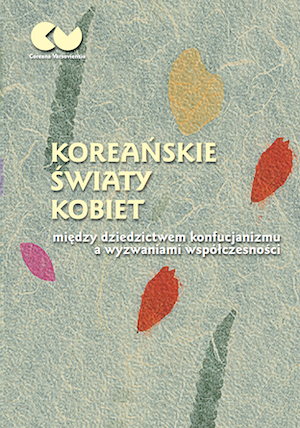Kim Myŏng-sun jako prekursorka koreańskiej prozy feministycznej
Kim Myŏng-sun as a Forerunner of Korean Feminist Fiction
Author(s): Anna Diniejko-Wąs
Subject(s): Cultural history, Studies of Literature, Other Language Literature, Philology
Published by: Wydawnictwa Uniwersytetu Warszawskiego
Keywords: patriarchy; First-wave Feminism; Korea under Japanese rule; new woman; gender
Summary/Abstract: Throughout traditional Korean literature that developed over centuries, feminine motifs were manifested, and female authors created various poetical and prose works, but it was only in the twentieth century that women’s fiction could take the form of an ideological and artistic feminist trend. The feminine voice in Korean literature was influenced by Western ideas, and the young writer Kim Myŏng-sun, who published her works from the 1920s marked by the temperament of a moral and emotional emancipationist, became a forerunner of Korean feminism. The article explores her pioneering attempts to speak about the conditions, social barriers and perspectives of women’s liberation in the dramatic reality of the conquered country. Her works often become an artistic confrontation of her own biography filled with difficult experiences on the path of gaining personal freedom, education and the unhampered shaping of emotional relationships, which, with all the artistic constraints of the pioneer, strengthens the honesty and authenticity of her own vision of the fate of women. A special theme in her works has become the ideal of the “new woman” introduced by the literature and the women’s press published in Japan under the influence of Western culture. Kim Myŏng-sun appeared in the Japanese academic and literary environment, where she gained education and watched a society on the path of a more advanced industrial modernization. Regardless of the fact that the works of Kim Myŏng-sun gradually fell into oblivion after her death, her literary output and her role as the first feminist writer in modern Korean literature deserve to be better known.
Book: Koreańskie światy kobiet – między dziedzictwem konfucjanizmu a wyzwaniami współczesności
- Page Range: 73-108
- Page Count: 36
- Publication Year: 2019
- Language: Polish
- Content File-PDF

